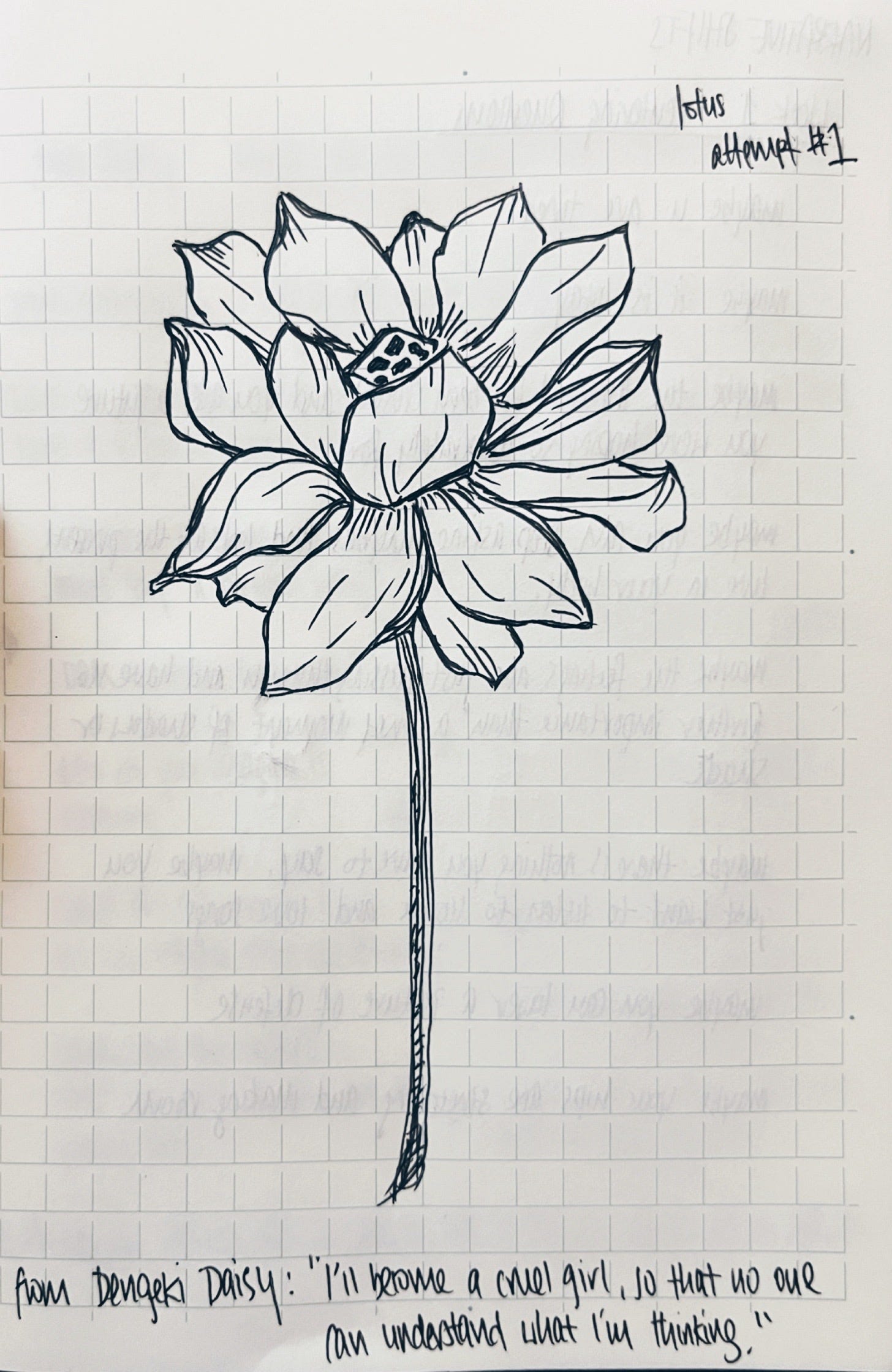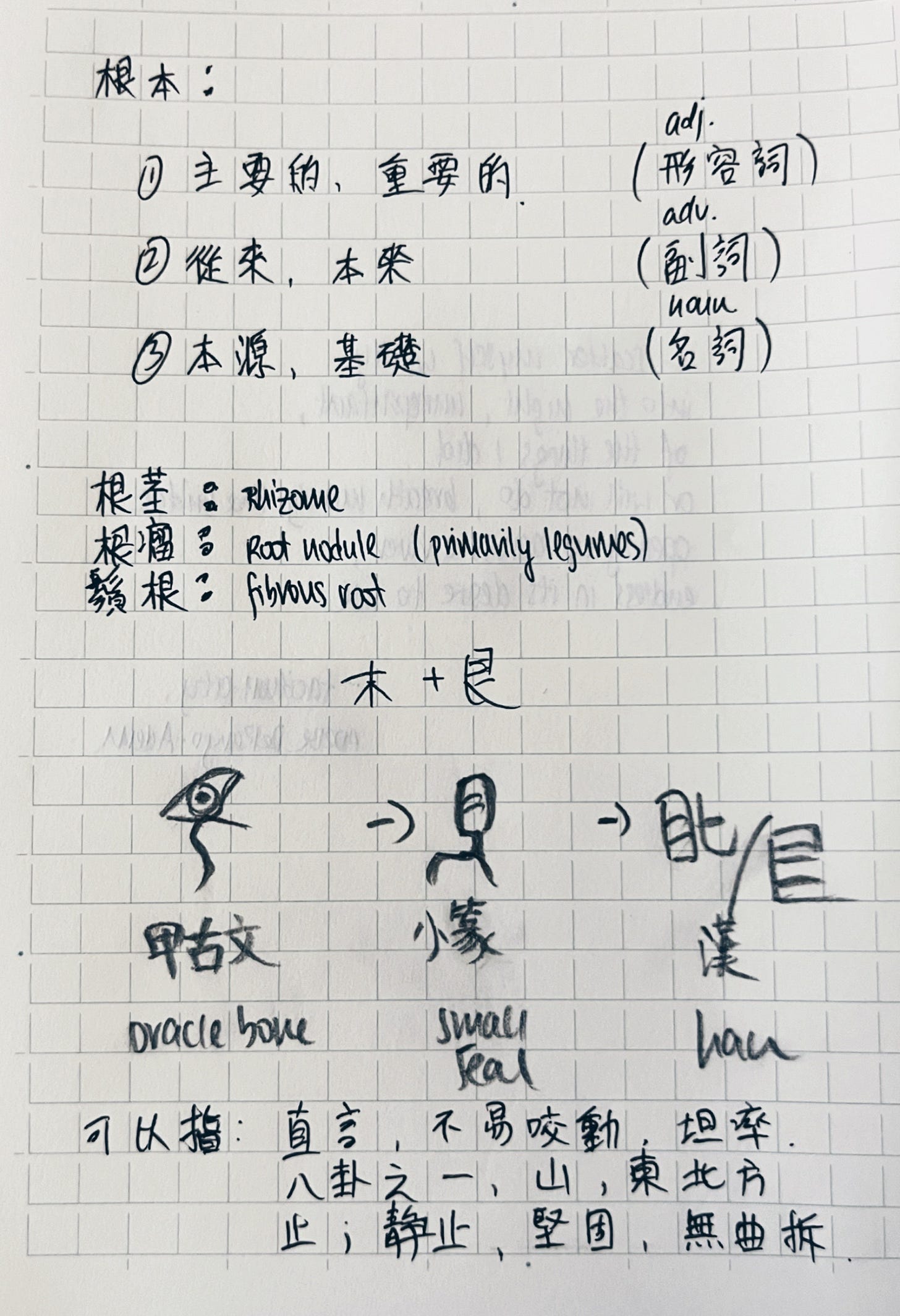and then there was time
#15 - first dispatch from the summer residencies
I scatter myself wildly
into the night, unrepentant,
of the things I did
or will not do, breath merely the bridge
opening up across a river,
endless in its desire to live
- Taciturn City, Adebe Derango-Adem
I’m currently part of Seventh Wave Magazine’s seven-week Digital Residency, Narrative Shifts, and also working with a group of friends through a TCM-focused iterative arts residency, Root Stem Branch Leaf that’ll stretch till the end of September.
It feels like such abundance to have so much time to focus on my own work right now, even as the world is swirling with such violence (does it ever stop or merely disappear from my horizon of capacity?).
I have been cohabitating with an armful of peonies, celebrating their various journeys whether in successful or failed blooms, and drinking in their scent. Whenever I have cut flowers in my home, I think of their rootless stems and wonder if the experience is a violence worth the beauty.
This makes sense because I am the root artist in Root Stem Branch Leaf, and will be sitting with the tangle and snarl of roots and what they are / mean / do / feel / want for a while. Beginning with rootlessness feels appropriate, as somebody with a rather weak relationship to the concept of a homeland, and an ambiguous relationship to the notion of belonging. Is the absence of root always bad? Or am I thinking too narrowly of a root?
The other flower I am spending much time with is the lotus, because its roots are rhizomatic, meaning they are really modified plant (underground) stems that send out more roots and shoots. I love that they grow horizontally, and I love that they create structures that decenter and move in dispersal.
It gets clear at any rate that the differences between root stem branch leaf aren’t as big as we assume.
In this week’s writing residency session, we free-wrote for five minutes around a personal mini-manifesto. The questions were
“What are you asking of yourself?” and “What are you asking of your reader?”
Here are some of my answers (unsorted) —
Do I trust you?
Does it have to be now?
Does the distance close between us?
Do I want to be near?
Where are the roots and where do the words land and grow?
Do they? Do they grow?
The other root exploring I’m doing is etymology studies of different words. For Chinese words, there’s a whole journey through scripts that give up so much body, scent and presence. What does it mean that the word for root, 根 was a compound that included a human carrying an eye? I am still thinking about this. The eye remains a part of the radical for quite a long time before disappearing into the more recognizable character we see today. What does it mean that the radical it becomes, 艮, means to be still or to stop. Why does it represent the mountain in the Eight Diagrams (Bagua)? Why is it associated with the Northeast?
The word is a poem I could spend time with for years.
根本 - root and base. defined as the important or main thing. defined as the original. defined as the foundation. can be adjective, adverb and noun. can be stem. can emerge from the stem if placed in water. can choose air. can choose salt water. can break concrete. can be a defensive emphasis. 你根本不懂。You don’t even know. 根本就沒有。 There is not. There is no root.
To conclude this week’s dispatch, here’s a walking song I’ve been listening to, translatable to “The world of nomadic pastoralists”. Okay, the title sounds awful in English, but vibes anyway.




